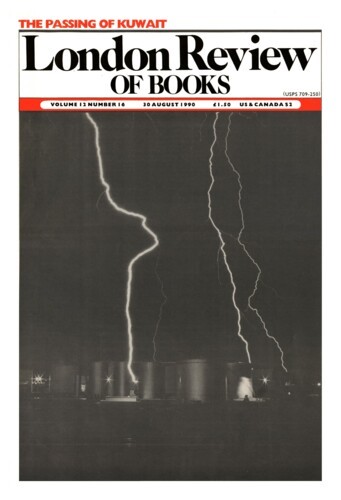Getting the wiggle into the act
Colin McGinn, 10 September 1992
Consciousness is not sempiternal, it has a history, a natural genesis. Once upon a time the universe contained no consciousness; then it sprang up here and there; and now the planet is flooded with the stuff. This is not to make the trivial observation that what people think and feel changes over time and generations, sometimes quite radically; it is a point about the deep biological roots of consciousness. Just as animal bodies are products of a long evolutionary process, in which chance variation is rigorously winnowed by natural selection, so animal minds must have a remote genesis in the mechanisms of differential survival as they worked on the available materials. Eyes gradually emerged as engines for exploiting the information contained in light, relying on the given chemical and optical properties of matter; and consciousness likewise must have emerged for some good biological reason, building on the prior properties of organisms. The question is how and why this happened: how did mentality arise from cell tissue? Answering this question would tell us not merely about the aetiology of consciousness: it would also help us to understand the nature of consciousness – particularly its relation to its physical substrate. If we knew the history of mind, then we would have effectively solved the mind-body problem, since we would understand how consciousness arises from matter.





